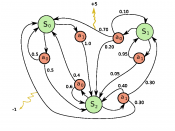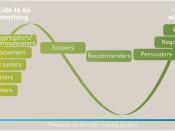Pluralistic contexts are situations where diversity or tension causes conflict inside the organization. In pluralistic settings, people have differing values and beliefs which make it to a complex situation for leaders of that organization to manage and control conflicts. How leader use the power and influence the employee to gain the organization goals and prevent conflicts when everybody are motivated and satisfied is the most important challenge in pluralistic situation.
The best way to control the power in pluralistic organization is to share power. To get anything done in a "no-one-in-charge" world, people and organizations must share something: information, objectives, activities, resources, power, or authority.
Power sharing requires a common objective, whether stated or not. People and organizations share power to achieve separate and joint gains and avoid losses. More than this, an overarching leadership aim is to construct policy regimes--a set of principles, norms, rules, and decision-making procedures--that prompt ethical and effective action to resolve a public problem; in other words, regimes of mutual gain.
In shared-power situations, many groups or individuals are partially in charge, with some responsibility to act; it is important to understand how each fits into larger efforts to achieve the common good. In a shared-power world Individuals, groups and organizations are enmeshed in numerous, overlapping policy-related networks, which vary in level of development.
This does not mean that power should share equally. Leaders must draw on many sources of power to change existing arrangements and power alignments. Also goals and preferences are fairly consistent, at least for a while, within groups, but inconsistent and pluralistic across organizations and coalitions. The positions of interest groups and the composition of coalitions can change, sometimes quickly. In this context, the decision-making process may appear disorderly because of the clashes of shifting coalitions and interest groups. Decisions result...


